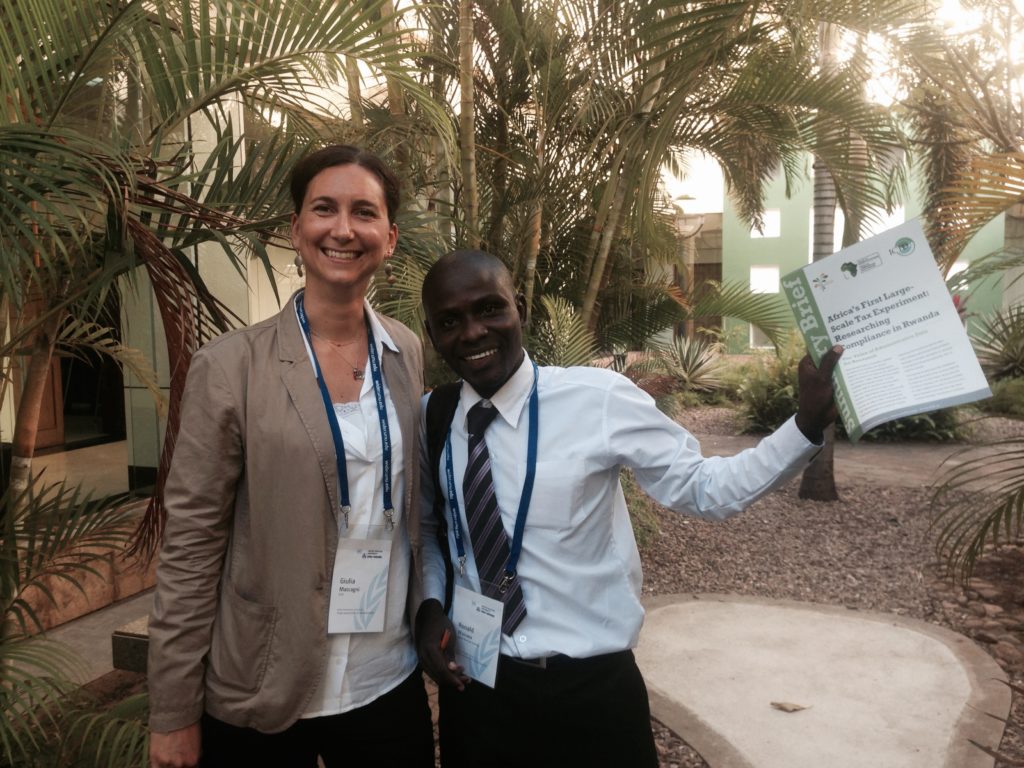From time to time, the ICTD may issue calls for research proposals in specific areas and provide guidance on how to respond to those calls. Please check our News section or subscribe to our newsletter to find out about opportunities for research funding.
We strongly encourage collaboration and co-production of research between Northern and Southern partners, and between researchers, tax officials, and tax policymakers. Ideally such collaboration would occur throughout the key steps of a typical project’s cycle, including the design, implementation, data analysis and writing up. Please see our principles of engagement for research collaborations here.
Submitting a research proposal
Your initial proposal should be a brief description of your project, which will allow members of the ICTD team to give you an initial indication of whether the project might be suitable for funding – and to highlight any immediate questions that they might have. Initial proposals should be brief, but provide enough information to allow reviewers to understand the goals of the research, its potential contribution to knowledge, and whether the methodology is appropriate and feasible.
Questions the proposal should address are:
- What question (or questions) am I going to try to answer?
- How does this project relate to other similar studies?
- What sets this project apart from other research?
- What data do I need to answer those questions?
- How will I get that data?
- How will I use that data to answer the question?
In order to submit a proposal, you must complete each of the text boxes in the form linked to below, responding to the relevant guiding questions. This structure is designed to ensure that you provide reviewers with all relevant information. Please note we require enough relevant information to be able to assess your proposal, and therefore have included minimum word limits for the main sections to be completed.
Once you have submitted the form, the ICTD will respond with comments and provide you with an answer on whether your initial proposal has been approved to advance to the detailed proposal stage, needs revision, or is not suitable for funding. If your initial proposal is successful, you will be contacted via email and asked to complete a detailed proposal form, which will be sent to you directly. Please see the detailed proposal guidance here.
Next steps if your proposal is successful
Please find below links to template documents that you will be asked to complete should you proposal be successful. The ethical and due diligence documentation will be vital in setting up the project and will be requested by our contracts team upon the approval of your application.
You will also be expected to write up the findings of your research as a paper in our publications series. ICTD publications are read by a diverse range of people, including policymakers, tax administrators, journalists, researchers, students, and civil society activists. We need to communicate as widely as possible. That means writing to be clearly understood by readers who are (a) less familiar with English (b)
unused to the various jargons used by academic social scientists or (c) more used to communicating verbally or on social media than through reading or writing long texts. We have compiled the ICTD writing guide for how to write for ICTD which should be read before drafting any papers aimed at sharing ICTD-supported research.

Research Ethics
The ICTD’s guiding principles on research ethics are:
1. Do no harm: respect of human life and dignity.
2. Accountability and transparency.
3. Collaboration, giving voice, and equal respectful partnership (see Our Approach).
The ICTD is guided by the IDS’ Research Ethics Policy and FCDO’s Ethical Guideline for Research. The researcher is responsible for exercising appropriate professional judgment when undertaking an ethical review of their research. It is also the responsibility of the researcher to follow the ICTD Ethics Guideline and any relevant academic or professional guidelines in the conduct of the study. Any significant change in the question, design or conduct over the course of the research will necessitate an amendment to the ethics review and will be subject to the same process of approval as for the original statement. For further guidance on considering issues of research ethics, please contact ICTD ([email protected]).
If you are aware of an ethical concern that you wish to report, please enter the details into the whistleblowing comment box below. This will be emailed directly to the ICTD Ethics Committee, keeping the source anonymous.